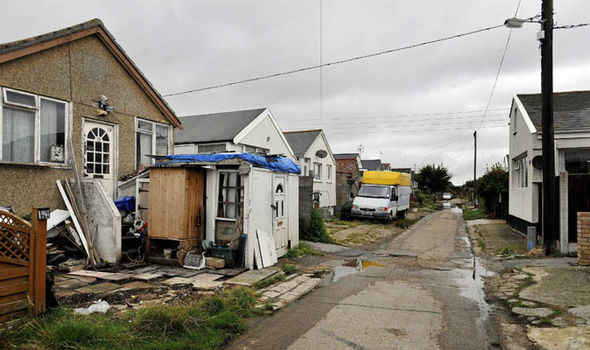
Jaywick, on the Essex coast east of London, has a totemic reputation in the United Kingdom.
The media has been known to paint the people there as lazy drug addicts, socially irresponsible and to blame for their own problems.
But the briefest visit tells an entirely different story, and it’s one which cuts to the heart of why the United Nations’ poverty and human rights specialist Philip Alston decided to visit – and one which speaks volumes of how the political class in the UK has failed many of the country’s poorest.
One resident, who’s lived in this small town of 5,000, said in days gone by it was described as Costa del Jaywick – a thriving working class holiday resort which people from London would go to.
There were holiday camps, amusement arcades, work at least during the summer months to sustain the place.
But when the holiday camps closed down, Jaywick became isolated. The railway line linking it to the bigger town of Clacton, up the coast, closed. Now there is only a sporadic bus service.
One of the biggest problems is that there is no supermarket, so if you’re out of work and don’t have transport then getting food isn’t easy.
Until three years ago many of the roads in the town weren’t even paved – they were bumpy tracks an ambulance couldn’t drive down. It’s one of the most extreme examples of British decline you can find.
So Jaywick became a trap people couldn’t escape from. No work led to drugs and alcohol problems. There are people on motorised scooters all over the place with long-term health problems.
Jaywick is ill. Many of the homes aren’t properly insulated either, which doesn’t help.
When the UN’s poverty rapporteur attended a public meeting in the town, he heard a litany of complaints from people about how their benefits are being cut, that they’re classed as fit to work when they are disabled, how the government’s new Universal Credit scheme – supposedly designed to simplify the whole payments system – is leading to them being without any money for weeks on end.
It’s become a common theme in the UK: people simply running out of money completely, and having to choose between turning the electricity on or having something to eat.
These things matter to the UN for two main reasons. The first is the straight fact that in one of the wealthiest countries on the planet, the wealth gap is among the widest.
The second is that under the UN rules the UK signed up to, the country has an obligation to improve the quality and human rights of poor people. The concern is that the UK is failing that obligation.
It’s also worth pointing out that this part of England voted heavily to leave the European Union in the Brexit referendum.
People in Essex believed that in doing so, politicians only a hundred kilometres away in London would understand their frustrations about inequality and would use the proceeds of leaving the EU to improve their lives.
There’s no sign whatsoever that is on any political agenda.
Far from being lazy good-for-nothings, the people of Jaywick are some of the friendliest, proudest souls you could hope to meet. They want what they used to have – a sense of community and something to live for.
That the UN came to their town, that someone is listening to them, has been a source of no little excitement. Whether anything will come of it is another question altogether.